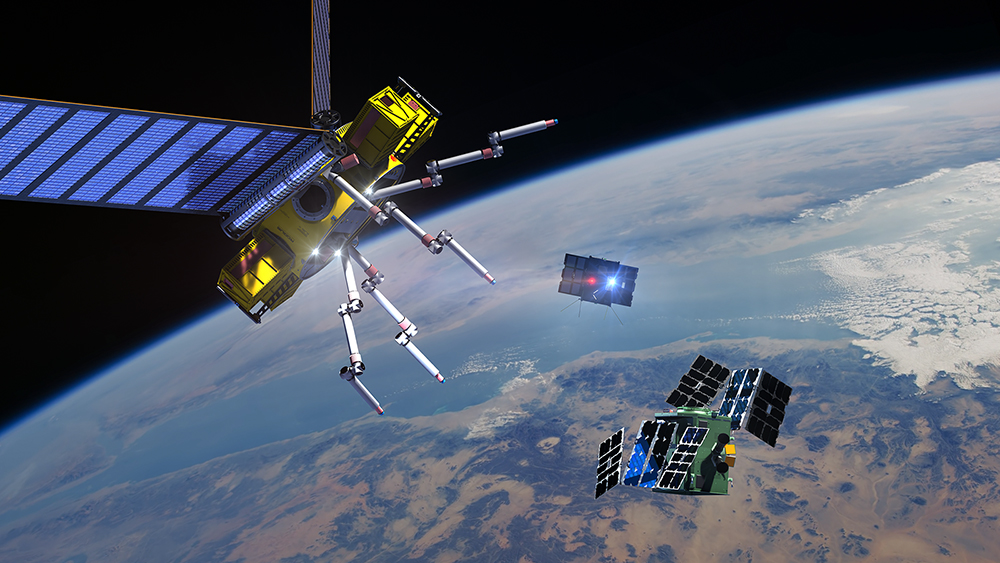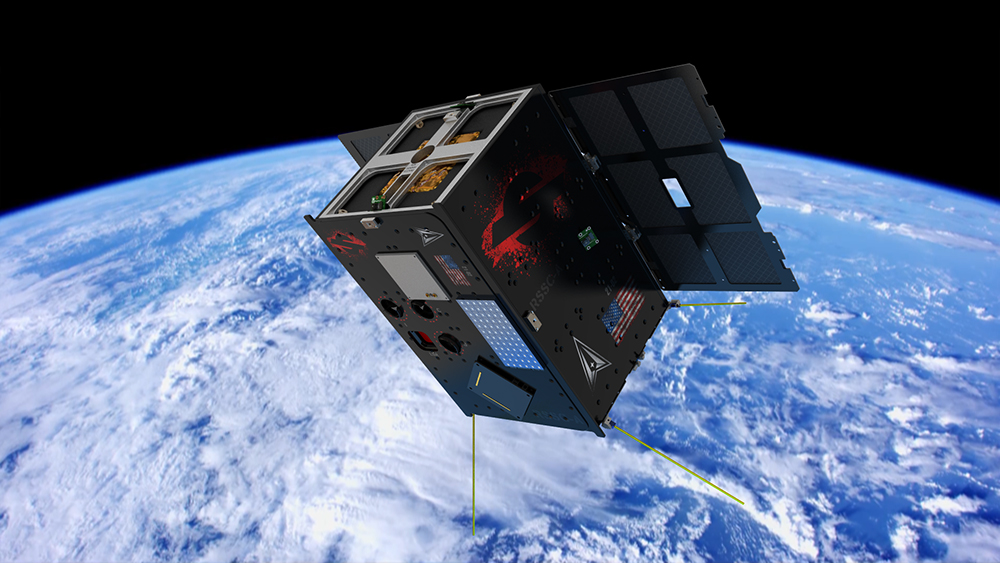 Rogue Space Systems Orbots Fred, above left, and Laura, below. (Courtesy)
Rogue Space Systems Orbots Fred, above left, and Laura, below. (Courtesy)
While space may be the final frontier, it’s become a booming center of development with 5,000 communication satellites and multiple companies exploring space tourism. It is a $447 billion industry that is expected to grow to $15 trillion. And one NH company is working to clean up that frontier.
Laconia-based Rogue Space Systems Corporation (rogue.space) is developing orbital robots (dubbed Orbots) that will allow for the safe removal of space debris. Rogue’s Orbot fleet includes Fred, a robot that can move satellites and other assets to and from different orbits, and Laura, designed to perform close-proximity inspection and observation services.
Jeromy Grimmett, founder and CEO of Rogue Space Systems, says the company started because of a research paper. He learned that the government had identified 300,000 potential strikes of equipment by space debris in 2018 alone. “I finished the paper,… went to the MIT space conference after encouragement from some professors, and I walked out and started what is now Rogue,” says Grimmett.

Rogue is working closely with the John Olson Advanced Manufacturing Center at the University of NH. John Roth, director of the center and a professor of mechanical engineering, says the center, which was created to help manufacturers with product and material issues, has been awarded a contract to create a roadmap for the first factories in space and to develop the first space-based economy working with firms such as Rogue.
“Space is no longer something to just briefly touch or throw something up there, but a place where we can be sustainable and conscientious of what we do,” says Roth. “For far too long, we have gone into space and treated it as a trash dump. Rogue is exactly the kind of company we want up there taking care of the space we’re in.”
Grimmett points out that the risk of collision makes it difficult to safely launch into space. “A few years ago, your window to launch a rocket was three to four hours, now it is only 15 minutes because of the amount of stuff flying around out there,” says Grimmett. “It presents a lot of problems from national security issues to being able to repopulate satellites to the ability to get weather info to keep us safe.”

 Current Issue - April 2024
Current Issue - April 2024